You can use knitr to force formatting.
knitr::knit_hooks$set(inline = function(x) {
knitr:::format_sci(x, 'md')
})
This will format the appearance to look like this (having used your code as described above).

I wasn't fond of the uneven distribution of space about x, so I found captured the functions (and supporting functions) and was able to get:

For the former, I used as you indicated. This isn't what you would use for the second option, though.
`r a`
You wouldn't need to call the hooks$set, but you would need to call the modified function and encapsulate the call with $.
$`r format_sci(a)`$
Here are the slightly modified knitr functions that produced the second option:
```{r doAsISay}
# scientific notation in TeX, HTML and reST
format_sci_one = function(
x, format = 'latex', times = getOption('knitr.inline.times', '\\times ')
) {
if (!(class(x)[1] == 'numeric') || is.na(x) || x == 0) return(as.character(x))
if (is.infinite(x)) {
return(
switch(format, latex = {
sprintf("%s\\infty{}", ifelse(x < 0, "-", ""))
}, html = {
sprintf("%s∞", ifelse(x < 0, "-", ""))
}, as.character(x)))
}
if (abs(lx <- floor(log10(abs(x)))) < getOption('scipen') + 4L)
return(round_digits(x)) # no need sci notation
b = round_digits(x / 10^lx)
b[b %in% c(1, -1)] = ''
switch(format, latex = {
sci_notation('%s%s10^{%s}', b, times, lx)
},
html = sci_notation('%s%s10<sup>%s</sup>', b, ' × ', lx),
md = sci_notation('%s%s10^%s^', b, '× ', lx),
rst = {
# if AsIs, use the :math: directive
if (inherits(x, 'AsIs')) {
s = sci_notation('%s%s10^{%s}', b, times, lx)
sprintf(':math:`%s`', s)
} else {
# This needs the following line at the top of the file to define |times|
# .. include <isonum.txt>
sci_notation('%s%s10 :sup:`%s`', b, ' |times| ', lx)
}
}, as.character(x))
}
# vectorized version of format_sci_one()
format_sci = function(x, ...) {
if (inherits(x, 'roman')) return(as.character(x))
vapply(x, format_sci_one, character(1L), ..., USE.NAMES = FALSE)
}
sci_notation = function(format, base, times, power) {
sprintf(format, base, ifelse(base == '', '', times), power)
}
round_digits = function(x) {
if (getOption('knitr.digits.signif', FALSE)) format(x) else {
as.character(round(x, getOption('digits')))
}
}
```
Alternatively, you can change this in your download of the knitr package. (I've made modifications to my downloaded packages before, not knitr, though.)
FYI, this was tested with and the images were from the knitted RMD using the output set to output: papaja::apa6_pdf.

